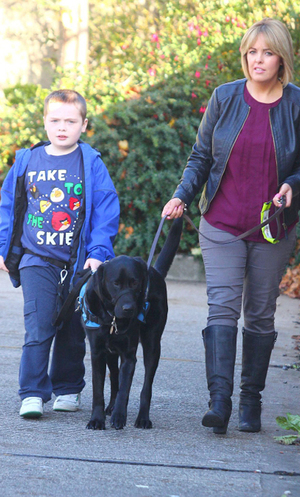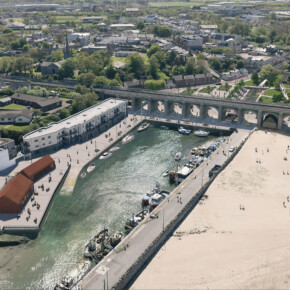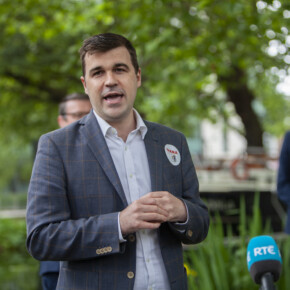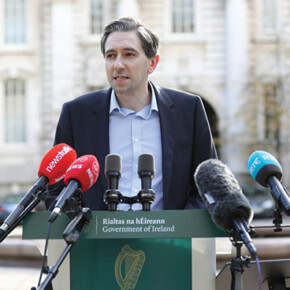Mum defends vital role of assistance dogs
Dublin People 12 Jan 2013
THE mother of a local child with autism has hit back at claims by the HSE that the benefits of assistance dogs are
“largely unsubstantiated
?.
Orlagh McGrail knows first hand how life-changing an assistance dog can be as her eight-year-old son Ryan’s world was
“transformed
? when they welcomed Mackey, a highly-trained Labrador Retriever, into their Finglas home.
Orlagh, who has leased the family’s assistance dog from Irish Guide Dogs since April 2012, said she was frustrated and surprised at the HSE’s view of the role of assistance dogs, which was recently raised in the Dáil.
In response to a parliamentary question, the HSE said providing financial assistance for the provision of assistance dogs to those within the
‘Autism Spectrum’ was not a priority and that their current focus was on protecting core activities.
However, the HSE statement went on to cite the findings of a programme for providing assistance dogs for families and children with autism, which was carried out in 2010.
Included in the report were concerns that there is
“no evidence of long-term effects
? of assistance dogs, which are deemed a
“relatively expensive intervention
?.
“In general, the many claimed benefits were largely unsubstantiated,
? the HSE statement read.
“It was also felt that the cost of providing this type of service was expensive when compared with the equivalent cost of a therapist that could provide intervention with proven benefit to many children.
?
The stand taken by the HSE surprised many, particularly families of autistic children who heavily depend on their assistance dogs.
In Orlagh’s opinion, the HSE has misrepresented the situation and the real and potential benefits of assistance dogs.
“It’s quite frustrating and upsetting that the HSE is taking this cynical viewpoint, especially when our family life literally changed overnight when we got Mackey,
? she told Northside People.
“It was that dramatic. Obviously Ryan had been getting occupational therapy and speech therapy but the benefits were nowhere near as dramatic or effective as his assistance dog who helps him to feel safe, secure and calm.
“Ryan has been able to go to school full-time; we can go out together as a family; and just the other day he got his first haircut which just would not and could not have happened without Mackey.
?
She added:
“Everyone we know, from our friends and relatives to Ryan’s teachers, have seen just how much Ryan’s life has changed, and in turn our lives, which is why I find the HSE’s line so hard to fathom and accept.
?
Orlagh says her situation is similar to the many other families she knows with assistance dogs.
“There are only 200 assistance dogs leased in Ireland,
? she explained.
“I was never contacted by the HSE to see what my experience has been so I’d wonder just how in-depth their research is.
“The HSE hasn’t told a story that I or other parents with children who use an assistance dog can relate to or recognise.
“I cannot describe just how much our lives have changed for the better.
“I accept times are tough and cutbacks need to be made but I’d argue that assistance dogs for children with autism are just as importance as guide dogs for the blind.
“My son can be blind-sighted when he goes into meltdown and the only thing that can help calm him is Mackey.
?
The Dail question in relation to funding for assistance dogs from the HSE was put forward by Fianna Fail TD Micheál Martin on behalf of local party councilor Paul McAuliffe, who was highly critical of the response.
“It would appear that aside from the current economic restrictions on finances, the HSE also seem to have a principled opposition to funding the provision of these dogs to families like the McGrails,
? Cllr McAuliffe stated.
“I am calling on the Government to examine the positive benefits that these dogs can have on the lives of children with autism and to put in place a method of training the appropriate number of dogs required.
?
In 2005, Irish Guide Dogs launched its assistance dogs programme for children with autism, the first of its kind in Europe. According to the charity, families on the programme have reported a number of improvements in their children, including greater aptitude towards learning, improved participation in social activities and improved communications skills.
Irish Guide Dogs is no longer taking any new applications due to its extensive waiting list.











